A Journey that Changed Me is a series of posts describing trips with a lasting impact.
Written by me and my Substack community, friends and connections.
The Metamorphosis Map is here to share, discuss, and illustrate all our life’s journeys.
If you would like to contribute an article, please send me a message.
I’d love to hear about your journey and the changes it sparked.
This week, I’m delighted to share a story by
, author of .When I’d tell people I was going to get married in June, most of them asked straight away: “Oh, cool, have you already chosen a destination for your honeymoon?”
I get it. Travel is exciting, and the honeymoon is a once-in-a-lifetime occasion (because let’s be real: two weeks off work is a luxury for many employees, in Italy as well as elsewhere).
However, the honeymoon really wasn’t in the top five or even top ten of my thoughts during the wedding preparation. The wedding was the magical day I was waiting for, and I didn’t care much about all the rest.
I’m not much of a traveler. I’m a creature of habit, and I’ve always felt tied down by my commitments: first university, then work. Family. Money. Time.
Excuses.
I’ve never lived great adventures abroad, and this was my opportunity. Two weeks with the love of my life. We could go wherever we wanted.
Yet, I wasn’t over-excited. I felt like no place in the world would change my life. I’d visit some cool museums, take pictures, eat in classy restaurants, and then I’d be home, with a suitcase full of dirty laundry and the same life waiting for me, ready to catch up with all the worries and uncertainty I’d briefly left behind. What’s the point?
I was the one to suggest Paris as a destination. I’d never been there, but my husband always said it was the most beautiful city in the world. I convinced him by listing the virtues of a cheaper, shorter flight, no jet lag, no passport (we’re EU citizens), and no complications. He’s even less of a traveler than I am, so these points, together with his beautiful memories of past trips to Paris with his family, were enough to win him over.
Being the planner I am, I organized everything in detail. I didn’t skip any of the typical tourist attractions. From the Eiffel Tower to the Moulin Rouge, from Sainte-Chapelle to the Lido cabaret, from the Opéra to dinner on a boat along the Seine, from the Louvre to the Arc de Triomphe: I wanted the perfect romantic Parisian cliché.
I wasn’t interested in “living like a real Parisian” or “getting to know the true soul of Paris”: as if you could do it on a two-week trip in the middle of summer.
So, I’m sorry, but this is not going to be the story of how I discovered a different culture a few thousand miles from home.
All I truly discovered during those two weeks was inside of me. Yet, without Paris, I don’t know how long it would’ve taken for it to come to light, if ever.
Let me skip the part where I tell you of how we strolled along the Champs-Élysées or dined at the highest restaurant in Paris with a panoramic view of the glittering, shiny tower. All you have to do is type “Paris” on Google or Instagram to be invaded by pictures of all the things we saw.
I won’t even talk about the insinuating thought everybody always has whenever they’re on vacation: that life here would be different, that this is a place full of opportunities, that everything here is clean and nice and works perfectly.
Truth is, everything works perfectly everywhere when you’re on holiday, and being an Italian, being born and raised in the postcard places people from all over the world come to visit, I know how true it is. I know what happens when the summer ends and the beach umbrellas close. I know there is no such thing as a perfect place, and it’s extremely easy to look like one to the eyes of dreamy tourists.
I didn’t want to be carried away by the words of the Italian taxi driver who took us from the airport to the hotel. She said we should pack our bags and move to France. That the future is still a thing there, that people are paid fairly for their work, that families are supported. That “welfare” doesn’t equal “babysitting grandparents” and that the nation is still something people feel they belong to, rather than an enemy to fight or to hide from.
My husband already had a light in his eyes listening to her words, but I didn’t want to believe. Because I know. Nothing’s as easy as it seems. Leaving our country? Our parents are getting older. They count on us. We live in the house his grandfather built for him. Would we really be able to start from scratch? Let’s just enjoy this fortnight. It doesn’t need to be anything more than that.
Oh, the restaurants were amazing, of course. People sitting outside cafés, sipping coffee and eating pastries so good I gained ten pounds in ten days—sure, they seemed to be living their best life.
But I didn’t let it sway me; while my husband fantasized about moving, I imagined the Paris of cold November mornings, foreign bureaucracy, traffic jams, impossible rents, loneliness.
I managed to keep my feet on the ground even when the sight of Pont Alexandre III took my breath away, even when the dancers at the Crazy Horse moved me to tears with their games of lights, even when Place de La Concorde embraced me like an old friend, inviting me to take it all in, to fill my eyes with beauty.
Sirens, nothing but sirens.
I was determined not to let them enchant me. Because if you start thinking there’s a better world out there, then how do you come home? How do you go back to your shitty job? How do you fall asleep at night knowing that all your hard work led to a life that’s only satisfying on the good days?
How do you not turn it into a feverish dream, all the more alluring as it turns into memory, those days back in Paris like an unkept promise? How do you stop wanting it? How do you force yourself to remember there’s a difference between a honeymoon and real life?
Either you pack your bags and leave, or you don’t. But living in between—staying, but dreaming of leaving; planning to leave, but never taking the leap—that is damnation. And I wouldn’t fall for that.
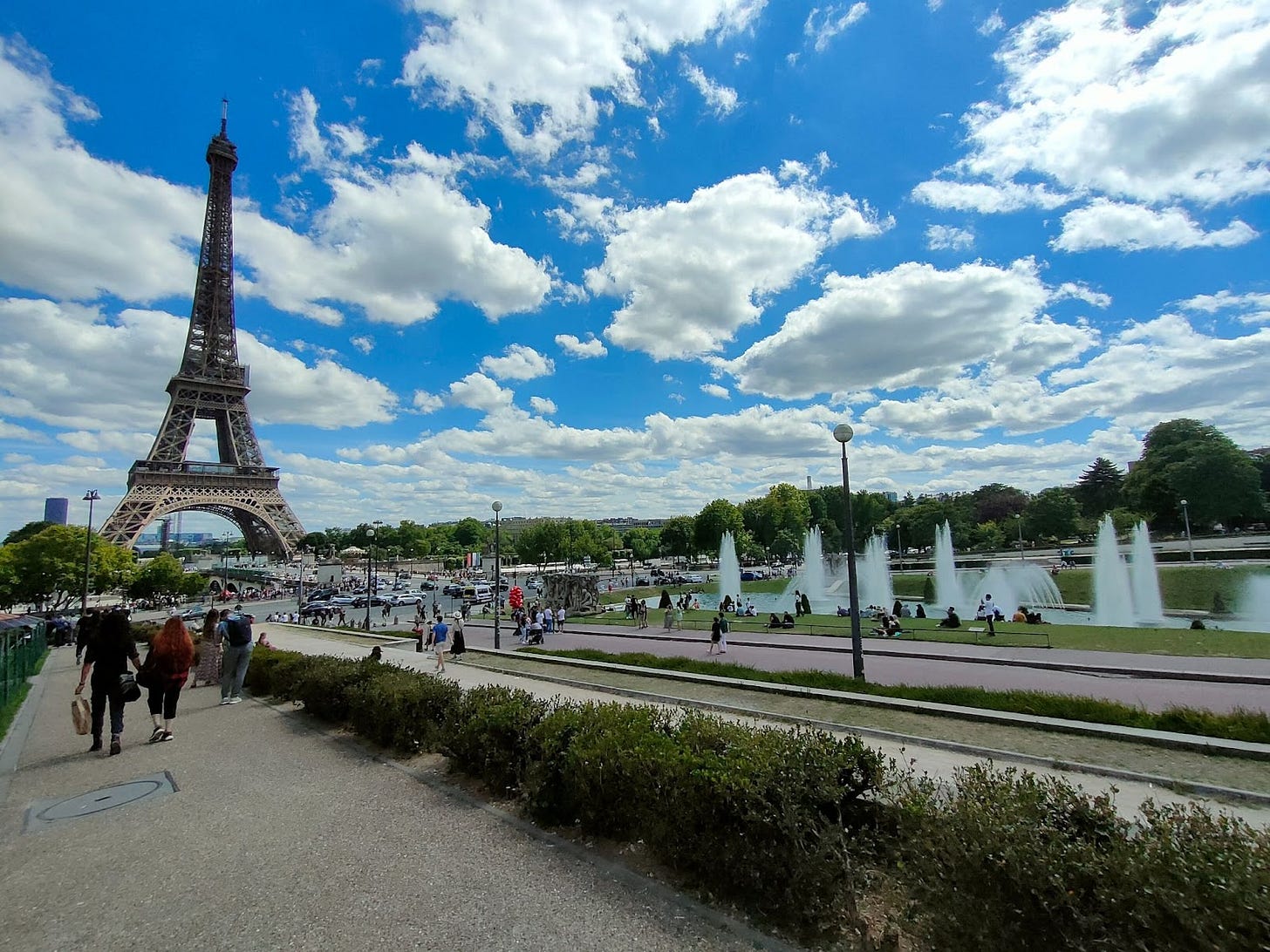
The spell caught me off guard in the middle of the street in the 7th Arrondissement, trying to get Google Maps to take us to the Champ de Mars. While my husband studied the map, I just stood there, my lack of any sense of direction making me completely useless to the task at hand, looking around, sighing at the elegance of the Parisian women—look, I hate to fall into a cliché, but oh my God how is their step so light and how are their outfits so cool?— when Paris took advantage of my distraction and pierced me.
The people on the street were talking to each other, and I couldn’t understand them. Not a word.
Oh, of course. I’m not a woman to be seduced by foie gras, luxury brands, or even rosée sunsets bathed in champagne. I can resist the call of museums and the elegant buildings.
But language.
Words have always been the most intimate part of me. There’s no place in my mind for anything but what I have a name for, and there’s no stronger drive for my curiosity than that of putting something into words.
Hearing those words I couldn’t give a meaning to, that was what finally made all my resistance crumble. I gave in to the magic of their language. I desperately wanted to be part of it.
And that was the start. That little seed I brought back home with me. Not the Eiffel Tower, not the Seine, although I couldn’t help but cry like a baby on the boat’s bridge while looking at “the most beautiful city in the world” glittering around me; not “Le mur des je t'aime” or the spectacular cabarets. All of that was nothing but a side effect, but what pierced my heart was French.
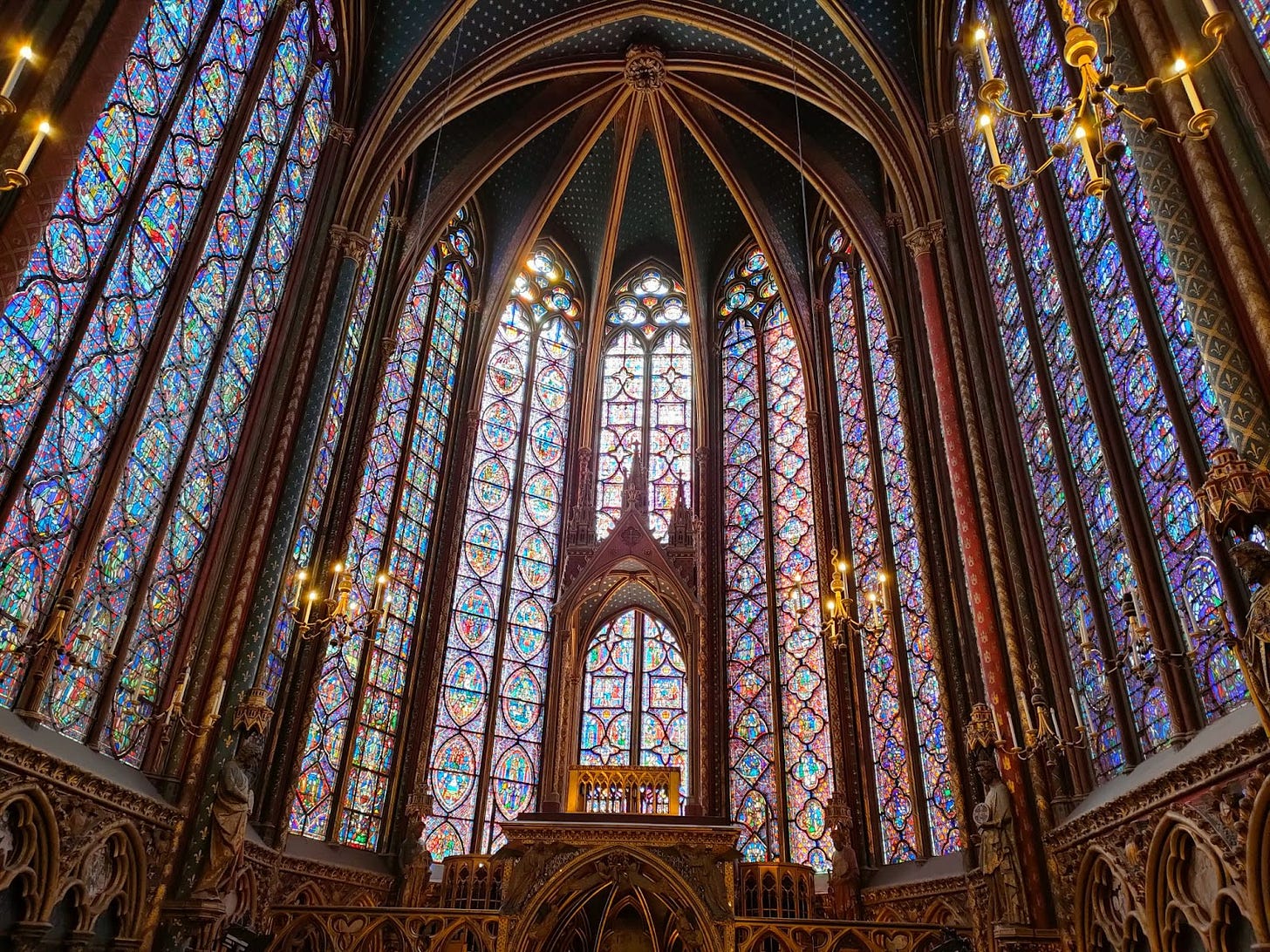
That was three years ago, and only now am I finally starting to study French.
I had things to do before.
See, my love for words had been silenced. I had done it. I was the child who dreamed of becoming a writer, but I felt ashamed of my own ambition—a writer? Who do you think you are? No one writes for a living!—and chose a different path.
I studied physics and concealed my love for words in science lessons that sounded more like fairytales than textbook formulas, and I probably would’ve never dared open up that Pandora’s box inside of me again if it weren’t for Paris.
If it weren’t for those strangers chatting in the street.
If it weren’t for the sudden, inescapable, irresistible desire to understand them. To communicate. To be part of it.
To find the words.
When we got home from our honeymoon, I decided to learn German rather than French, because I thought it would give me greater job opportunities. I studied it at home alone, and I passed the C2 level exam within two years.
In the meantime, I qualified to become an English teacher, I left my classroom job, and I started writing—first, some guest posts on blogs about language teaching, then on Medium, now on Substack. I let my love for words bloom.
And today, I’m finally paying my dues by learning French from a completely different position. Today, I teach Italian and English and write for a living, and my life looks completely different from what it was three years ago.
I love my job, and although there are good days and bad days, my life is not only wonderful on the good ones.
After all, Paris is said to be the city of love and the city of lights. So it lit the way for me, it reminded me of who I am and what I love, and all I had to do was follow.
Thank you for sharing a beautiful love story on several levels, Federica.
If you are interested, follow Federica’s progress teaching herself French!
Life is a journey, and everyone’s map looks different. 🗺️






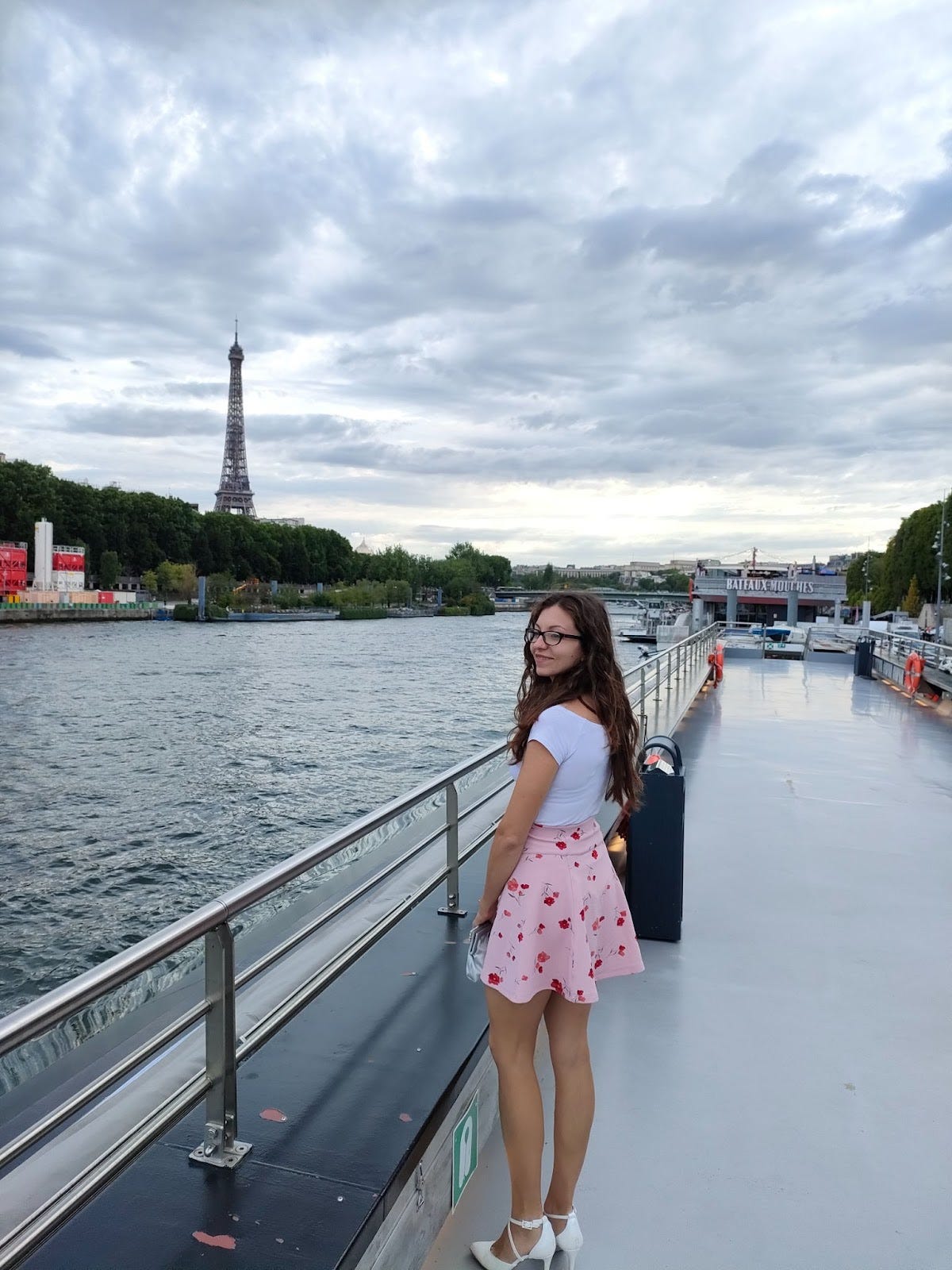
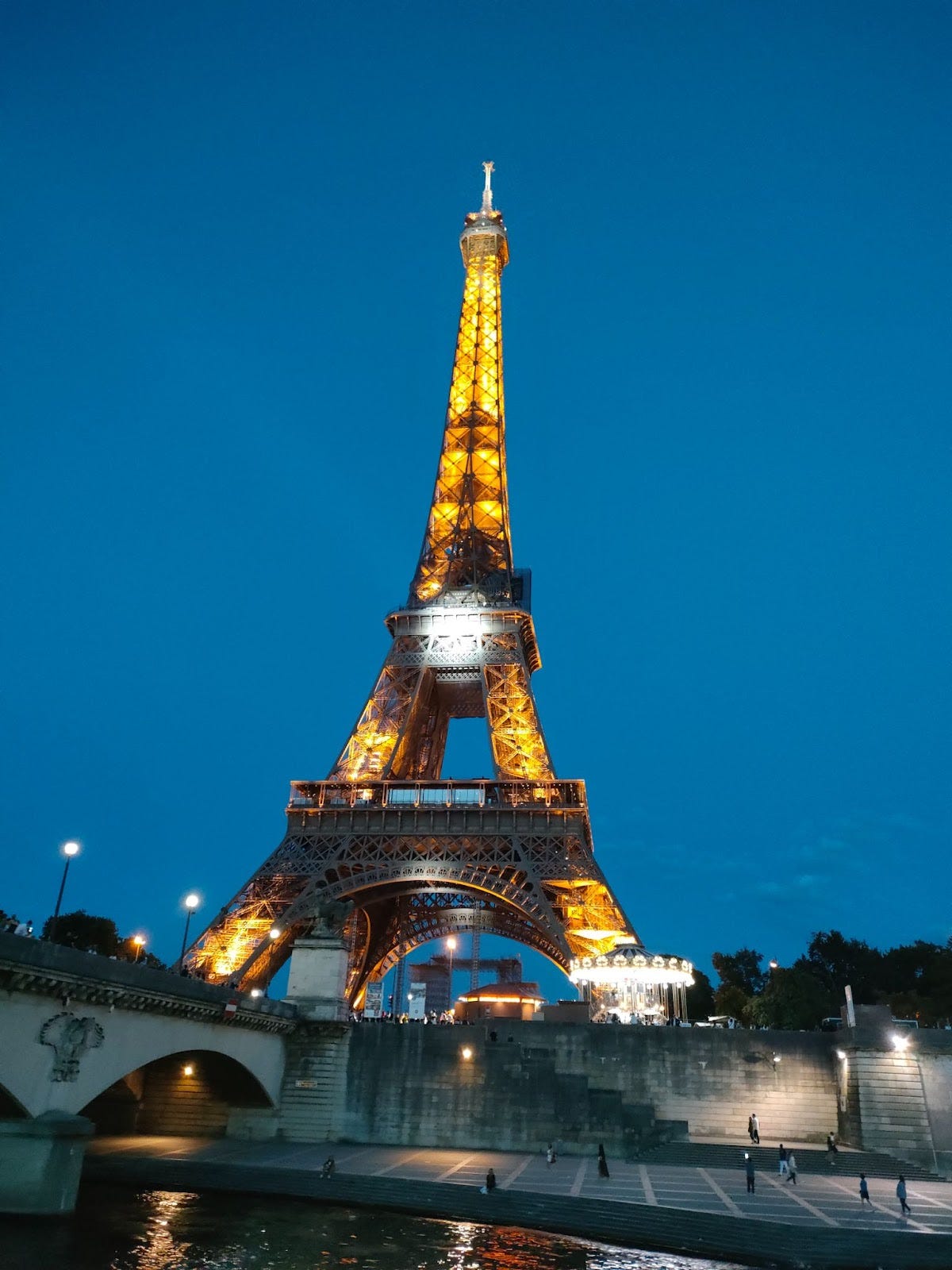
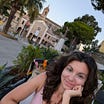
What a wonderful example of how travel can unearth the parts of us we’ve buried under ‘shoulds’ and ‘maybes.’ You write with such clarity and care, Federica, and I’m so glad you chose to honor that inner writer.
More, please, Lisa.
Happy weekend to you both.
Having grown up in the South of France, I'm sometimes surprised by the impact that Paris has on its visitors. Big & busy is what comes to mind first but I have to admit the next word would be beautiful. Bonne chance avec ton apprentissage du français Federica, and thanks for sharing Lisa!